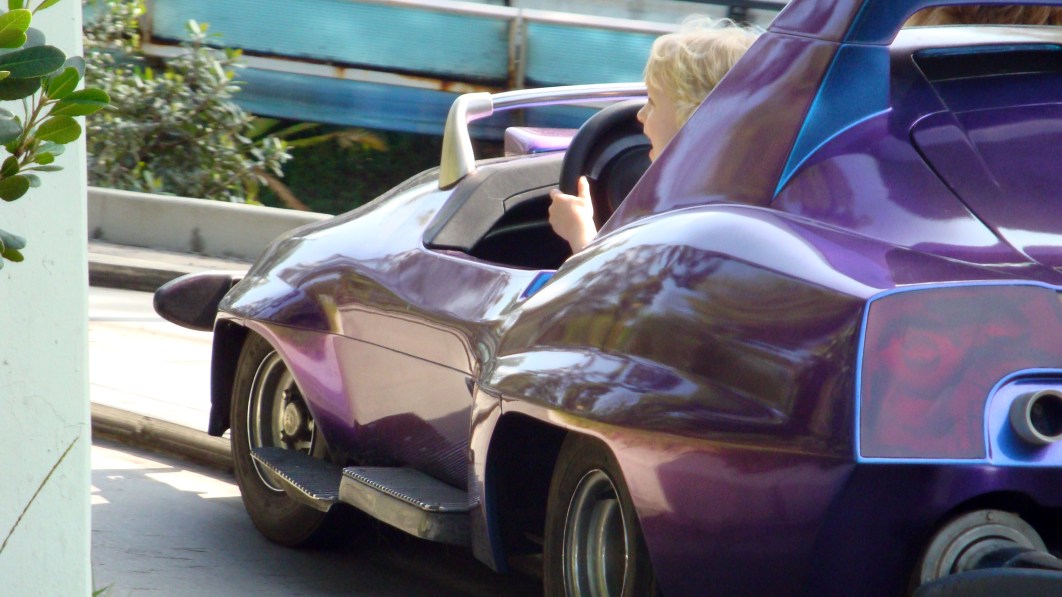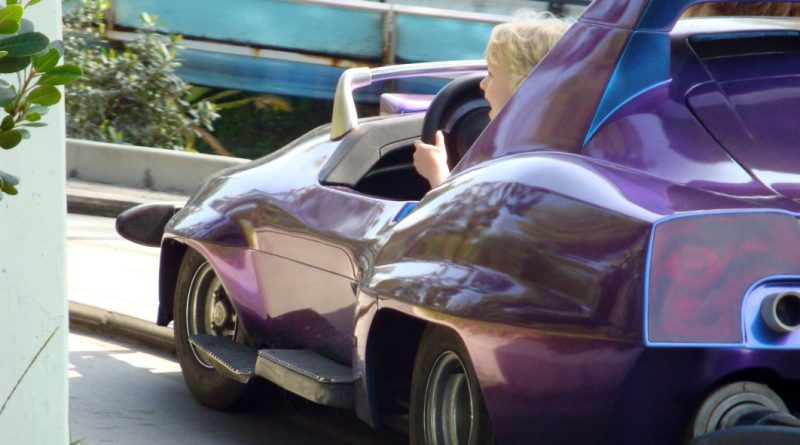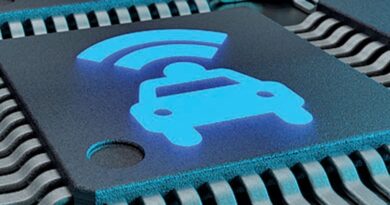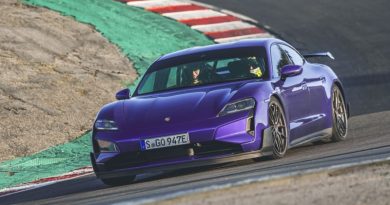Disneyland’s Tomorrowland cars are ditching fossil fuel

If you’ve been to Disneyland, the Tomorrowland’s Autopia attraction is likely burned into your gearhead brain. The car ride has been around for many decades, but it’s about to see one of the most significant changes in its long history. The gas-powered minicars, which resemble futuristic VW Bugs and other vehicles, will soon go electric, a move that will fundamentally change the ride’s personality and could make it more accessible for people with aversions to loud noises.
Disney spokesperson Jessica Good told the L.A. Times, “Since opening with Disneyland park in 1955, Autopia has remained a guest-favorite most popular with young kids experiencing driving for the first time. As the industry moves toward alternative fuel sources, we have developed a roadmap to electrify this attraction and are evaluating technology that will enable us to convert from gas engines in the next few years.” That said, the spokesperson declined to clarify if the change would involve EVs, hybrids, or other propulsion systems.
While gas engines were in their heyday in the 1950s when the attraction began, they don’t really qualify as “Tomorrowland material” today. Disney’s shift aligns with Tomorrowland’s creator’s wishes, too. Bob Gurr, the 92-year-old designer who worked with Walt Disney himself on the attraction, said, “Get rid of those God-awful gasoline fumes.” He believes Tomorrowland could become a hub for information on sustainable transportation, renewable energy, and other pressing climate issues.
At the same time, this change likely won’t come without its detractors. Electric vehicles have become extremely politically charged, and Gurr acknowledged that the change will take some finesse to stick. “This has to be done with positive urging rather than attacking and criticizing.”
Despite some criticism about the impact of its parks and business practices on the environment, Disney has a plan to reach zero emissions. Improvements to the Disney World park in Florida could boost its renewable energy usage to almost 40 percent of the facility’s total consumption. By 2030, the company said it would reach net zero emissions and purchase or produce 100 percent zero-carbon electricity.




